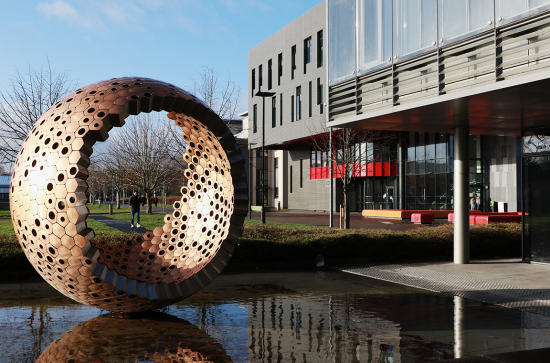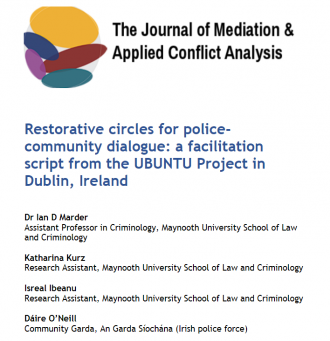
In recent weeks, Dr. Ian Marder (Assistant Professor in Criminology, Maynooth University School of Law and Criminology) published a co-authored academic article, and three articles with Irish national media outlets.
The academic article, entitled Restorative circles for police-community dialogue: a facilitation script from the UBUNTU Project in Dublin, Ireland, was published in the Journal of Mediation and Applied Conflict Analysis. The article provides the background and script from a dialogue process the authors co-designed, organised and studied in Blanchardstown in 2022. Co-author Katharina Kurz was the project’s research assistant, while Isreal Ibeanu and Dáire O’Neill were its co-facilitators. You can read the article here. You can also find a previous article outlining the findings from the study here.

In July, RTÉ published an article, entitled How criminal justice can harm victims more than crime itself. This article introduces the concept of secondary victimisation, explaining that victims can experience additional harm through their interactions with criminal justice at many points in the process – not just in court. This may be mitigated, however, by applying procedural justice in the short term, and creating a ‘dual-track’ process for victims in the long term. Read the article here.
RTÉ later published a second article, entitled Could early releases solve Ireland’s overcrowded prisons’ crisis? This piece explains that prisons have long been overcrowded internationally, the new UK government plans to release some people early to mitigate this, and Ireland has various ways to release people into the community. Ultimately, Ian argues, we need to move away from the ideas that justice should be primarily retributive and that prison can be expected to reduce harm in society. You can read the article here.
Finally, this week saw the publication of an article in The Journal, called Why seizing drugs might cause more than it prevents. This article challenges recent suggestions that drug price rises can be directly attributed to police seizures, noting that the evidence is unclear that drug availability, prices and harms are necessarily improved by police’s activities. Although drug seizures provide the opportunity for PR exercises, strong leadership is needed to adopt an evidence-based policy of harm reduction across government and policing. Read the article here.

